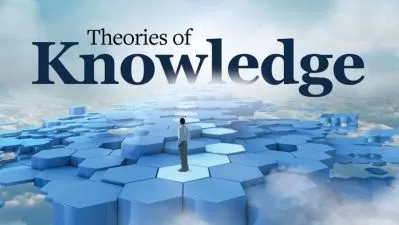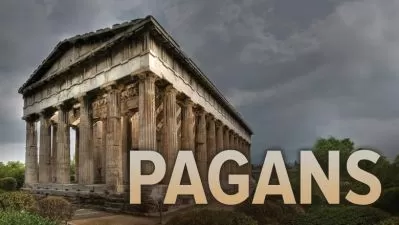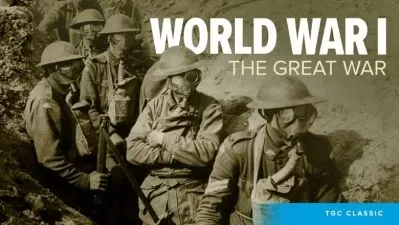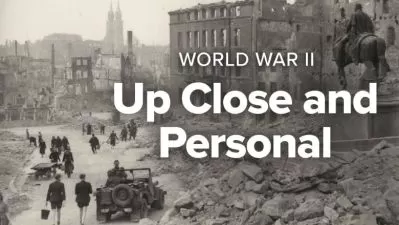The Black Death: New Lessons from Recent Research
Dorsey Armstrong
2:47:16
Description
The world has been fundamentally changed by the shock and devastation of a 21st-century pandemic. COVID-19 has claimed six million lives; we process a daily deluge of often conflicting and/or overwhelming information; and humanity has no way of knowing when this collective trauma will finally, truly end. Will our lives ever be the same again? It seems not.
Now, try to imagine the plague that devastated Europe in the Middle Ages and beyond: more than 25 million dead. Almost 400 years of outbreaks were caused by a bacterium that would not be identified until the 19th century. The mortality rate was close to 85%, with as much as 70% of the population wiped out in some locations. Superstition was pervasive, and medical practices were frequently ineffective and harmful. What caused this tragedy, and what could have been done about it? For years, we thought we knew … but we often had it wrong.
In The Black Death: New Lessons from Recent Research, celebrated medievalist Dorsey Armstrong shares the fascinating new story of this old pandemic, revealed by dedicated researchers working with 21st-century technologies. In seven engaging lectures, Professor Armstrong corrects some previous explanations of the pandemic that are now known to be inaccurate and offers a more robust description of plague biology than has ever been known. COVID-19 isn’t likely to be humanity’s last experience with a zoonotic disease, so what can we learn now from these two pandemics that could help us in the future?
How We Got It So Wrong: The Famous Siege of Caffa
For centuries, the world told itself the same story over and over about how the plague began to spread throughout Europe in the Middle Ages. The story goes that the city of Caffa (now the city of Feodosia, Ukraine), located on the trade route connecting a coastal shipping industry to overland caravan routes and the Far East, came under attack by Mongol hordes in the 1340s. The Mongols lobbed plague-infested bodies over the outer walls of the city and into the healthy crowds. Often described as the world’s first act of biological warfare, the assumption was made that those bodies were responsible for the initial spread of the plague into that region, and then from there farther west into Europe.
In recent years, however, several factors have allowed us to look at the siege through new eyes. Most important:
- Until recently, there have been very few scholars with the skills to understand the significant letters, legal documents, and diplomatic reports of the time from both Western sources and the Mongolian and Muslim worlds. Now, scholars with expertise in a wider variety of medieval communities and languages have been able to gain access to primary sources.
- Scientific discoveries have allowed a new genetic analysis of the plague, examining ancient DNA in bodies recovered from plague pits to determine the genetics of the many waves of the plague.
- Scholars previously relied on eyewitness and first-person accounts of plague deaths to understand the pandemic. With the application of newly implemented scientific methods, plague scholars now follow the science first, giving less credence to personal accounts by individuals who might have specific motives behind their commentary.
As a result, plague scholars now know two significant facts that debunk the Siege of Caffa as the initial cause of plague spread. Most significantly, we know that the strain of plague that caused the Black Death entered Europe one time and only one time. And second, now that we know the grain trade was the primary vector of transmission, bringing fleas infected with the bacterium Yersinia pestis into the medieval world, we also know the transmission of plague to medieval Europe was, in fact, delayed by the Siege of Caffa rather than caused by it.
Whom Can We Blame?
It’s safe to say we consider our 21st-century selves to be considerably more enlightened than the medieval people who faced the Black Death. And yet, in some very significant and unfortunate ways, we seem to be no better off than our ancestors. Most obviously, we all want someone to blame. Who did this to us?
Professor Armstrong describes how such scapegoating led to murderous results without furthering real knowledge about the disease. Why bother considering other options when you “know” a particular group of “outsiders” did this to you? Professor Armstrong discusses how both the plague and COVID-19 resulted in systematic blaming of specific populations and communities.
- Jews and the Plague. In the 14th century, during the first outbreak of the Black Death in Europe, some people postulated that Jews were poisoning Christians’ wells in an attempt to wipe out the religion. On February 14, 1349, all the Jews of Strasbourg were rounded up and executed as a preventive measure; the plague had not yet even reached the city.
- Ottomans and the Plague. During the 1720-21 outbreak of plague in Marseille, people were quick to blame trade from beyond Europe as having brought the plague to the port city. What we know now is that the plague arrived one time in Europe—and that arrival occurred before the Ottoman Empire came to be.
- Asians and COVID-19. While COVID-19 might have started in the Wuhan province of China, Professor Armstrong believes that many nations continually highlighted the geographic location of the virus’s origin to deflect focus from the world’s inadequate response. She also points to a well-documented rise in hate crimes against Asian Americans.
Moving Forward
Many Europeans who survived the first wave of the Black Death were better off than they were before, with increased wealth and the ability to demand more for their labor. And by the last of the plague’s major outbreaks 400 years later, much of European life had been transformed. But can we look at those changes to meaningfully imagine how our own world might change following our current pandemic? Professor Armstrong discusses:
- Labor. Just like in the aftermath of the Black Death, many survivors of COVID-19 are finding their labor in higher demand, which is driving up wages. Having had their perspective changed by the pandemic, many people have decided life is too short to spend so much time working, and we do not know what the result will be for the labor markets.
- Role of Government. Having witnessed 400 years of cyclic death and destruction, Europeans wanted to be able to turn to their governments for protection—not just for military defense, but also for defense against catastrophic natural calamities that people felt sure would visit them again. The United States, having been established in a different time and without that collective history, did not have that outlook.
- Social Safety Nets. While social safety nets were developed in Europe in response to the plague years, Americans have taken the existence of social safety nets for granted, without giving much thought as to their establishment and maintenance. If specific medieval institutions did a better job in the wake of the plague than institutions of the 21st century, what can we learn from them?
Professor Armstrong argues that catastrophic events like pandemics do not create the conditions that lead to racial or ethnic violence, or to the collapse of economic and medical systems. Rather, a pandemic reveals the social, economic, and political flaws that are already inherent in society. Regardless of the specific future of COVID-19 and any other pandemics that could come after, we have learned a lot of lessons in the last couple of years, and there are sure many more to come.
More details
User Reviews
Rating
Dorsey Armstrong
Instructor's CoursesDorsey Armstrong is a Professor of English and Medieval Literature at Purdue University, where she is also the head of the English Department. She received her AB in English and Creative Writing from Stanford University and her PhD in Medieval Literature from Duke University. She also has taught at Centenary College of Louisiana and at California State University, Long Beach.
Professor Armstrong’s research interests include medieval women writers, late-medieval print culture, and the Arthurian legend, on which she has published extensively. She is the author of Sir Thomas Malory’s Morte Darthur: A New Modern English Translation Based on the Winchester Manuscript; Gender and the Chivalric Community in Malory’s Morte d’Arthur; and Mapping Malory: Regional Identities and National Geographies in Le Morte Darthur (coauthored with Kenneth Hodges). She is also the editor in chief of the academic journal Arthuriana, which publishes cutting-edge research on the legend of King Arthur, from its medieval origins to its modern enactments.
Professor Armstrong is a recipient of the Charles B. Murphy Outstanding Undergraduate Teaching Award, Purdue’s top undergraduate teaching honor.
Professor Armstrong’s other Great Courses include The Black Death: The World’s Most Devastating Plague; Turning Points in Medieval History; The Medieval World; Analysis and Critique: How to Engage and Write about Anything; Great Minds of the Medieval World; and King Arthur: History and Legend.

The Great Courses
View courses The Great Courses- language english
- Training sessions 8
- duration 2:47:16
- English subtitles has
- Release Date 2023/08/19

















